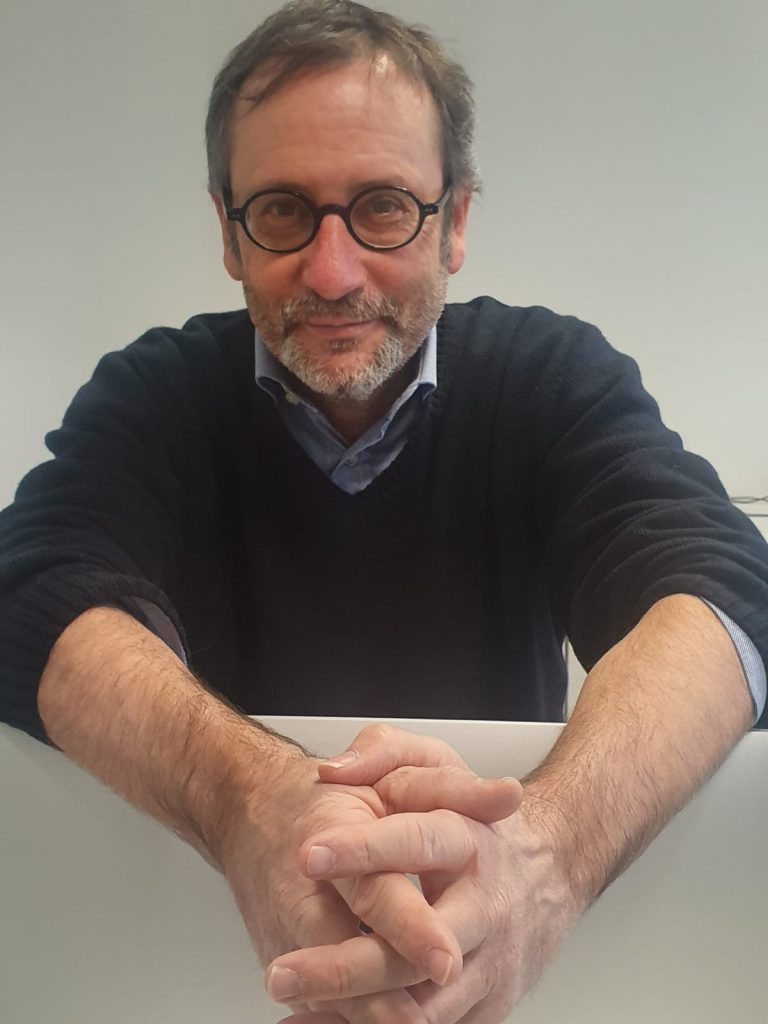Smart digital for Businesses
I’m Massimo Cassani, and I’m #YOURNOVELISTPRO
This week we are interviewing Massimo Cassani, a well known Italian fiction writer, Journalist, and professor at ‘Bottega di narrazione’, a Creative Writing Academy. founded by Giulio Mozzi. Massimo speaks about his passion for writing and what is his opinion about digital transformation.

Location: Milano, Italy
Current job: writer, journalist and editorial director at “Ambiente&Sicurezza”.
One word that best describes how you work: quick, quick, quicker!
My greatest success: seeing my novels published.
My biggest fear is: disappointing myself
My favourite writer is: there are so many talented writers, I will pick an English one, Jonathan Coe, as my way to thank you for having me on your blog
My life dream: to continue publishing novels one after the other
First of all, tell us something about your background and when your passions for writing started.
I studied classics and then I specialized in journalism. My passion for the written word was born very early, together with my passion for writing. But I only dedicated myself to it when I felt ready enough to do it. My first novel is from 2008; I was forty-two, not really a kid!
How was the transition from being a journalist to a writer?
These are two completely different worlds. As a journalist, I have always tried to develop simple, accessible writing. The journalist’s goal is, first of all, to convey information through the medium of writing. As a writer, however, I have to focus not only on the contents but also on how to evoke emotions, even in the descriptions of the characters and places. We can say that writing novels can and must be played on several levels, and various nuances; by contrast, writing journalism has to be direct, and the more direct, the better.
How did you manage to keep both careers and at the same time, to collaborate with the writing academy ‘Bottega di narrazione‘?
I try to manage all my journalist work over the week and spend my free time working with Bottega di narrazione. It’s not an easy task because free time is so rare, but I believe we all have this problem nowadays. As for writing novels, it’s something that always goes on in my head.
Can you tell us a bit more about ‘Il Commisario Micuzzi’, when and how the character was born? Was the character inspired by someone in your life or does he have anything in common with you?
Il Commissario Micuzzi was born really by chance. An international literary agent asked me if I was available to develop the plot of a kind gentleman – non-writer – who had a good story (a true story) to write. I should have been a ghostwriter. I hadn’t published anything at the time; I had just finished writing a children’s novel with a friend (a novel that has never been published). I was enthusiastic about the proposal and straight away wrote the synopsis for the story which was enriched with other invented characters, including a minor character whom I called “Micuzzi” because in Italy it is an uncommon surname. But my synopsis was rejected, so I cut everything from the plot that wasn’t mine and made this Micuzzi the protagonist of the first novel (“Sottotraccia”). Micuzzi has a fatal distraction, like me: sometimes I go around the house looking for my cell phone and asking myself desperately: “But where will I have put my cell phone?”. Now the series is stopped, I want to write other things. But in the future, we will see..
‘L’ ultimo ritorno‘ is a different kind of book. Why did you decide to move away from detective stories into another genre?
“L’ultimo ritorno” is a family novel, yes, very different from the previous detective stories. Writing this story, however, I realized that the mystery, the secrets, the double games “live” well even outside the typical genre novels. And in family stories they “live” very well … many families are not the paradise that some want us to believe.
As #NOVELISTPRO, what do you think about the digital transformation? Do you believe it’s a good change or is digital somehow polluting the nature of writing?
Nothing lives forever, but above all, things change. I don’t think the past is better than the present and that the future will be worse than the age we are living. Writing is no exception. Today we write in a completely different way than a century or two ago, and in a century or two, the differences will be just as marked. Let’s not forget that writing is a medium and objects (ink and inkwell, ballpoint pen, typewriter, writing programs …) are just tools to express it. Even in the web age, there are those who know how to express themselves very well and those who seem semi-illiterate. The instrument certainly changes the writing, but I would not speak of “pollution”, I would rather talk of “contamination”. And contaminations are always fertile, in my opinion.
Tell us your trick to have a good work/free time balance in your day.
I really don’t have one! Unfortunately, there are no fences in my head, and everything gets confused. Sometimes it’s a resource, many other times it’s not. Maybe that’s why I’m so distracted.
Last but not least, tell us three books that you should bring with you on a desert island.
What a difficult question! I prefer not to mention the classics: they would be too many. I choose three novels from the ones I have read recently, and they impressed me: “Berta Isla” by Javier Marias, “Waiting for Bojangles” by Olivier Bourdeaut, and “What Happens at Night” by Peter Cameron.
Now please fill the gap about your five pro tips:
- Your golden rule in writing: let the stories grow inside my head, every moment, not just as I write.
- Best place to recharge: there is no specific place, the important thing is to walk, walk, walk.
- A movie to watch over and over: Ulysses’ Gaze by Theo Angelopoulos
- A game for your brain: I love to imagine possible things.
- A bit of advice for an emerging writer: reading is essential, yes, but reading while trying to understand what are the mechanisms that govern the stories is even more important. Often these mechanisms emerge even in the most unsuspected novels, even in those that are not considered masterpieces.
You can learn more about Massimo Cassani’s book here
